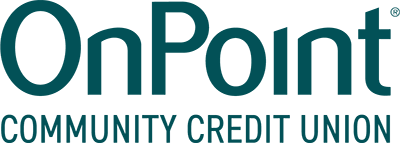Many Oregonians found themselves without funds to pay their bills when the COVID-19 pandemic hit in 2020. While payment deferrals and loan forbearance programs offered some relief, what happens if you are unable to resume payments when these programs end? Debt continues to rise across the state – the average in 2021 was $61,760 in total debt per household.
The most important step is to communicate with your creditors. Working directly with your creditors is the best way to keep as many options open as possible in handling your debt:
- Discussing your situation with your creditors may help you come to terms to repay the debt.
- Ignoring the issue often leads to collection actions and negative reporting to credit agencies.
- Negotiating with creditors and making arrangements to pay the debt directly is in your best interest.
How should I try to settle my debt?
If you have good credit, or assets with equity, you may try to request lower interest rates on your credit cards, consolidate credit card debt with a low-interest balance transfer, or tap into equity to consolidate your debt. Your goal with tapping into available credit and equity is to reduce your overall interest rate and decrease your payments to a manageable level. This makes sense if some adjustments would lead to your being able to resume making timely payments on your obligations.
If you’re unable to find a path to manageable payments, however, you may consider settling the debt with your creditor.
Why do creditors accept settlement offers?
Creditors are typically willing to work with you to settle your debt because, after numerous missed payments, it’s likely clear to the company that the alternative is either continued nonpayment or even bankruptcy. Receiving at least a partial payment is often preferable for the company than writing it off as a total loss.
Is it smart to use a debt settlement company?
Working with a debt settlement company typically works like this:
- You’ll begin setting aside money each month to build up your settlement payment.
- Meanwhile, you’ll stop paying your creditors.
- The debt settlement company negotiates a specific settlement payment that is lower than your debt amount.
- Once you’ve saved that amount, you’ll make a lump sum payment to erase that debt.
While this process all sounds quite simple, there are some risks and drawbacks that go along with working with a debt settlement company.
First, it’s critical that you vet the company before you give them any information or money, to avoid debt settlement scams that may take your money before helping you out.
Working with debt settlement agencies also isn’t free. You’ll pay the company a fee, often a percentage of the total debt they settled for you. Also, you may have to pay account fees to the institution where you’ll set aside your monthly payments while saving up for the settlement.
Finally, consider the time it takes to settle debt. Often, these agencies promise to settle your debt within 36 months. If you’d rather attempt to settle your own debt, you may be able to do so in a shorter time frame than three years.
How to settle your debt on your own
If you decide to attempt settling your debt on your own, you’ll be the one reaching out to creditors to negotiate. Go into the conversations armed with as much knowledge about your situation and the options you have.
Know which debts can be settled
Some debts aren’t as simple to resolve as reaching out to a creditor. Student loans, for example, typically aren’t dischargeable through bankruptcy, so it’s uncommon that these are able to be settled. Instead, review the available student loan repayment programs that can help you manage them.
Be prepared with enough cash
To the creditor, the point of settlement is to get some amount of money for the debt. If you come to the table with no funds to encourage them to come to an agreement with you, it’s much less likely that you’ll be able to settle. The sooner you’re able to transfer funds to the creditor, the better. Companies are usually more willing to accept a lower amount that you can pay immediately, rather than spacing payments out over time. To determine how much cash you need to settle your debts, consider how much you owe vs. what the creditor will accept. Most companies will settle unsecured debt for between 40 and 50% of the total amount owed, according to Forbes.
Question how the settlement will be reported
While your primary goal is to negotiate the settlement agreement, you should also bring up how the debt payment will be reported to the credit bureaus. Often, settled debts are reported as “Settled” or “Paid Settled.” If you can convince the creditor to instead report it as “Paid as Agreed,” it will look better on your credit report.
Be patient but persistent
Even though creditors often prefer partial payment than complete non-payment, most are still averse to agreeing to a settlement at first. Pursuing debt settlement on your own will take time, patience and persistence. You’ll likely have to explain why you need to settle your debt rather than pay in full. Maintaining a consistent story throughout each conversation with each person you speak to during the process will help establish your position and convey your financial hardship to your creditors. Prepare for each call to your creditors by identifying your key points and practicing your pitch.
Stay educated about your options
Are you struggling with your debt? Check out OnPoint’s blog for more information about financial management, or talk to a certified financial counselor about your options through our partnership with GreenPath Financial Wellness.




